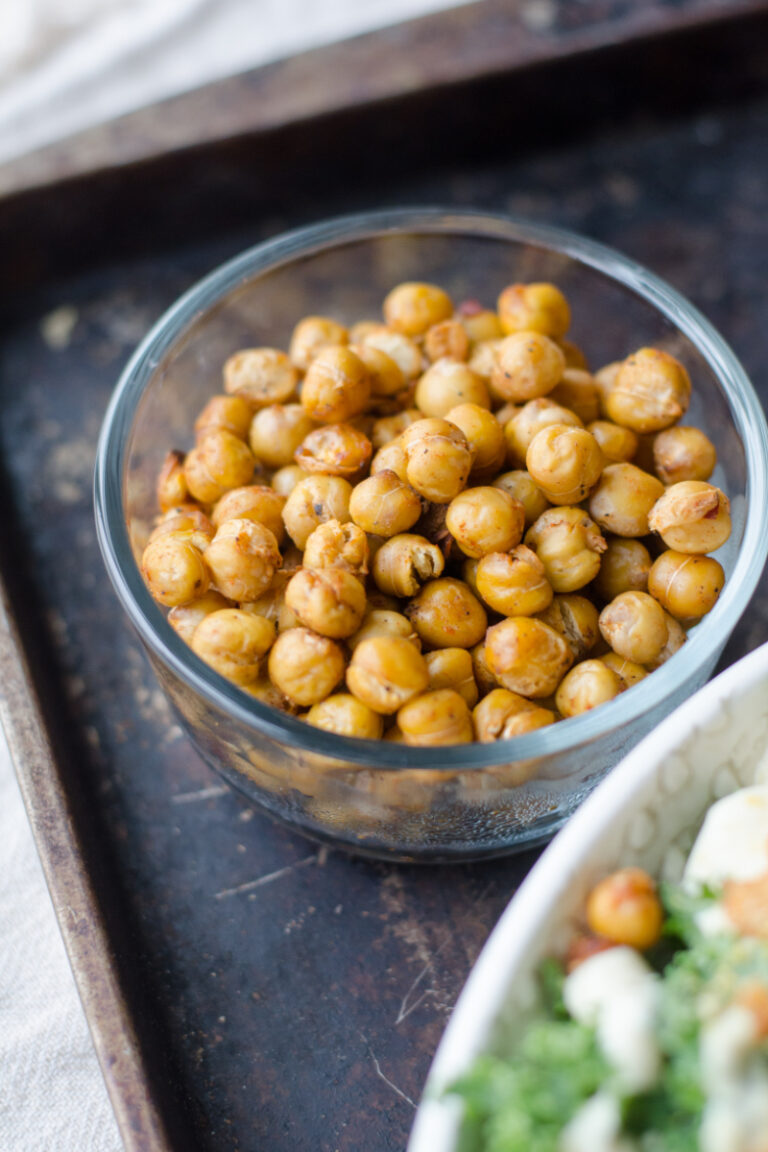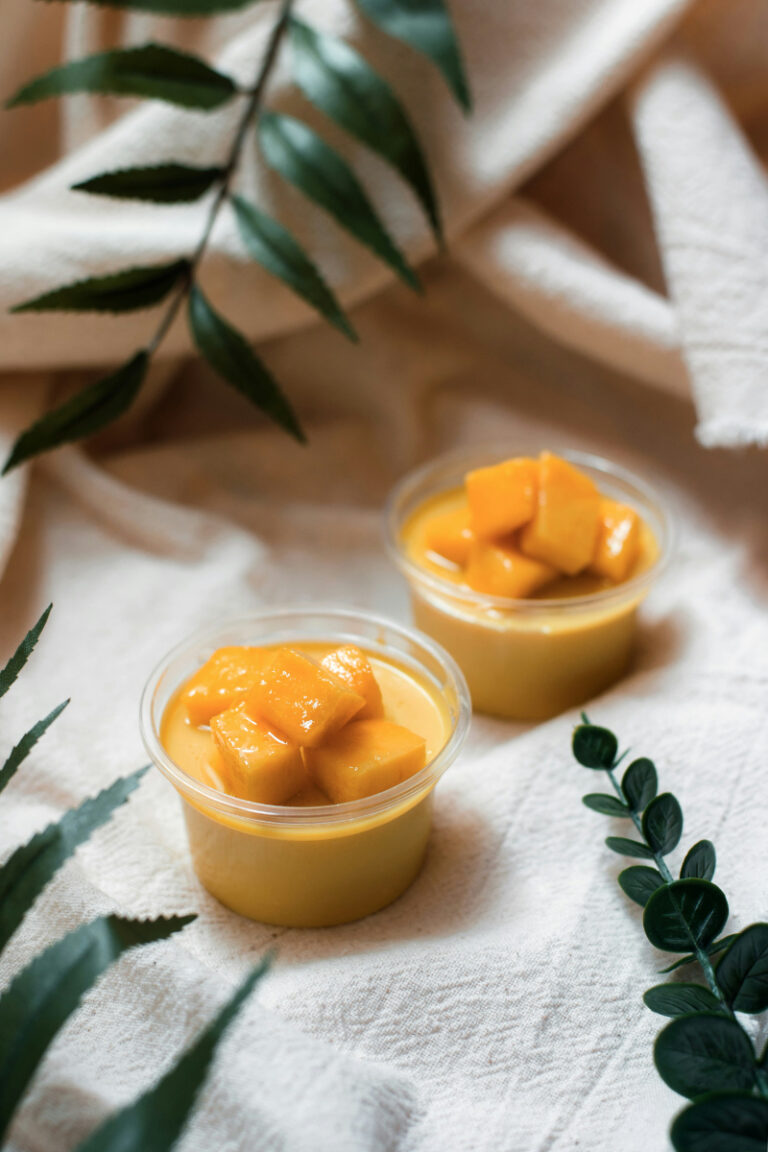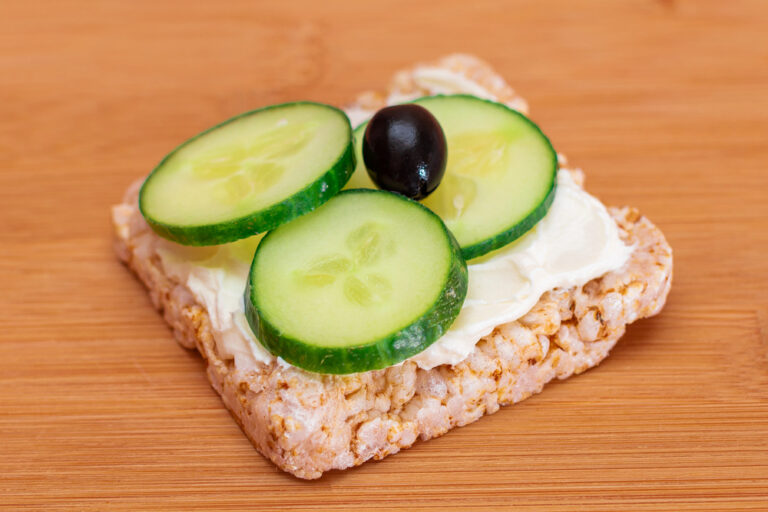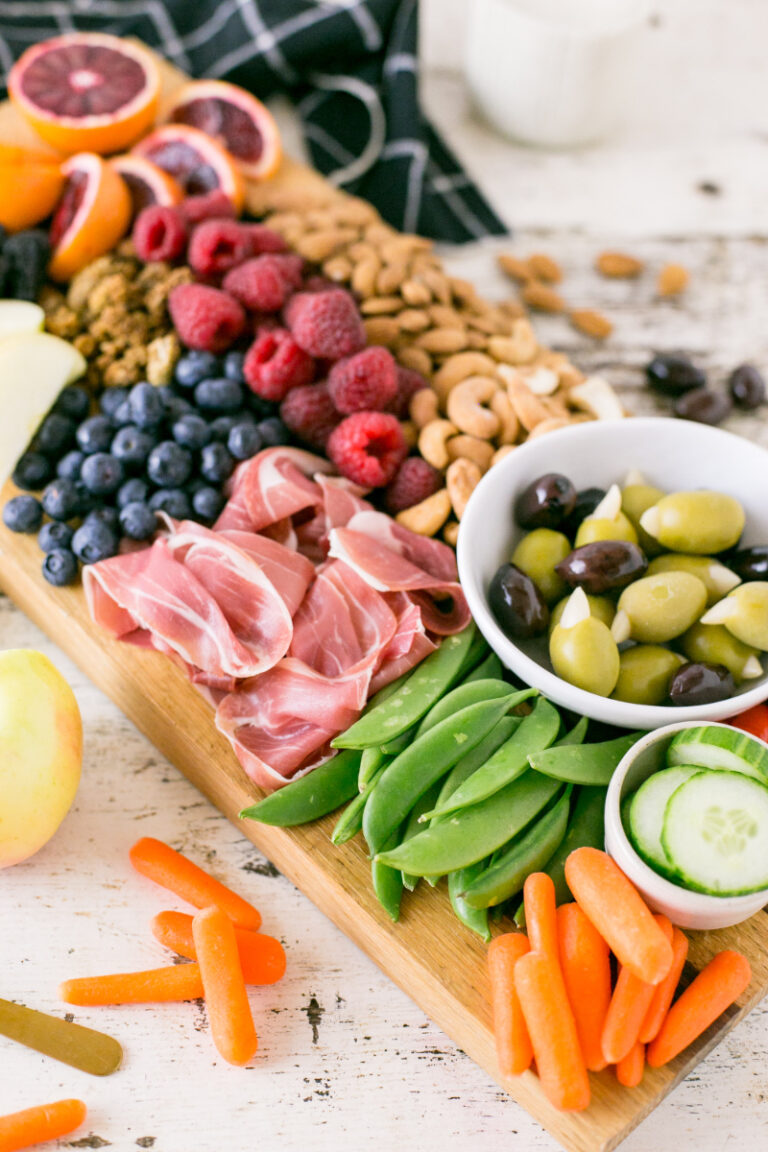Healthy Bedtime Snack Ideas for Toddlers
Are you struggling to find healthy bedtime snacks for your toddler? It can be challenging to come up with ideas that are both nutritious and satisfying for your little one. Fortunately, there are plenty of options that can help your child feel full and promote a good night’s sleep.
When it comes to choosing bedtime snacks, it’s important to opt for foods that are easy to digest. Heavy, greasy, or spicy foods can cause discomfort and make it harder for your child to fall asleep. Instead, focus on lighter options that are rich in nutrients and won’t upset their stomach.
Some great choices for bedtime snacks include yogurt with fruit, smoothies, or sliced apples with nut butter. These options are not only delicious but also provide important vitamins and minerals that can support your child’s growth and development. With a little creativity and planning, you can find plenty of healthy bedtime snacks that your toddler will love.

Understanding Toddler Nutrition
As a parent, you want to make sure your toddler is getting the right nutrition to support their growth and development. Toddlers have unique nutritional needs, and it’s important to understand what they are so you can provide them with healthy and balanced meals and snacks.
Nutrient Needs
Toddlers need a variety of nutrients to support their growth and development. Here are some of the key nutrients your toddler needs:
- Protein: Protein is important for building and repairing tissues, and for supporting the immune system. Good sources of protein for toddlers include meat, poultry, fish, eggs, beans, and tofu.
- Carbohydrates: Carbohydrates are the body’s main source of energy. Toddlers need carbohydrates to fuel their active bodies and growing brains. Good sources of carbohydrates for toddlers include fruits, vegetables, whole grains, and dairy products.
- Fat: Fat is important for brain development and energy. Toddlers need healthy fats from sources like avocado, nuts, seeds, and fatty fish.
- Vitamins and minerals: Toddlers need a variety of vitamins and minerals to support their growth and development. Good sources include fruits, vegetables, whole grains, dairy products, and lean protein.
Portion Sizes
Toddlers have smaller stomachs than adults, so they need smaller portion sizes. A good rule of thumb is to offer your toddler about a quarter of what you would eat. For example, if you are serving yourself a cup of pasta, offer your toddler a quarter cup.
Snacks
Snacks can be a great way to provide your toddler with the nutrients they need throughout the day. When choosing snacks, aim for a balance of protein, carbohydrates, and healthy fats. Good snack options for toddlers include:
- Apple slices with almond butter
- Yogurt with berries
- Cheese and whole grain crackers
- Hummus and carrot sticks
- Hard-boiled egg and a slice of whole grain toast
Hydration
It’s important to make sure your toddler stays hydrated throughout the day. Offer water with meals and snacks, and encourage your toddler to drink water throughout the day. Avoid sugary drinks like juice and soda, as they can contribute to tooth decay and other health problems.
Importance of Bedtime Snacks
As a parent, you might be wondering whether it’s necessary to give your toddler a bedtime snack. The answer is yes! Bedtime snacks can be an essential part of a healthy bedtime routine for your child.
Here are a few reasons why bedtime snacks are important:
1. Helps Your Toddler Sleep Better
A small, healthy snack before bedtime can help your toddler feel full and satisfied, which can prevent them from waking up hungry in the middle of the night. Hunger can cause discomfort and restlessness, which can make it difficult for your child to fall asleep and stay asleep.
2. Provides Essential Nutrients
Bedtime snacks can be an opportunity to provide your toddler with essential nutrients that they may have missed during the day. For example, a snack that contains protein, fiber, and healthy fats can help your toddler feel full and provide them with sustained energy throughout the night.
3. Can Be a Part of a Healthy Bedtime Routine
A consistent bedtime routine can help your toddler feel calm and relaxed, which can make it easier for them to fall asleep. A healthy bedtime snack can be part of this routine, signaling to your child that it’s time to wind down and prepare for sleep.
When choosing a bedtime snack for your toddler, make sure to choose something that is healthy and nutritious. Avoid snacks that are high in sugar, salt, or artificial ingredients. Instead, opt for snacks that are rich in protein, fiber, and healthy fats, such as a small bowl of oatmeal with fruit, a hard-boiled egg, or a smoothie with milk and frozen fruit.
By incorporating a healthy bedtime snack into your toddler’s routine, you can help them sleep better and provide them with essential nutrients that they need to grow and develop.
Ideal Nutrients for Bedtime Snacks
When it comes to choosing bedtime snacks for your toddler, it’s important to focus on foods that will help them feel full and satisfied without disrupting their sleep. Ideally, you want to choose snacks that are rich in protein, fiber, and healthy fats.
Protein
Protein is an essential nutrient that helps to build and repair tissues in the body. Including protein in your toddler’s bedtime snack can help to keep them feeling full throughout the night, which can help to prevent them from waking up hungry.
Some good sources of protein for bedtime snacks include:
- Greek yogurt
- Cheese sticks
- Nut butter (such as peanut butter or almond butter)
- Hard-boiled eggs
- Turkey or chicken slices
Fiber
Fiber is another important nutrient that can help to keep your toddler feeling full and satisfied. It can also help to regulate digestion and prevent constipation, which can be especially important for toddlers who are prone to digestive issues.
Some good sources of fiber for bedtime snacks include:
- Fresh fruit (such as apples, bananas, or berries)
- Raw veggies (such as carrot sticks or cucumber slices)
- Whole-grain crackers or bread
- Popcorn (plain or lightly salted)
Healthy Fats
Healthy fats are an important part of a balanced diet and can help to support brain development and overall health. Including healthy fats in your toddler’s bedtime snack can help to keep them feeling full and satisfied throughout the night.
Some good sources of healthy fats for bedtime snacks include:
- Avocado
- Nuts (such as almonds or walnuts)
- Seeds (such as chia seeds or pumpkin seeds)
- Hummus
- Guacamole
By choosing bedtime snacks that are rich in protein, fiber, and healthy fats, you can help to ensure that your toddler gets the nutrients they need to sleep soundly through the night.
Snack Ideas
When it comes to choosing bedtime snacks for your little ones, it’s important to opt for healthy and nutritious options that will help them sleep better. Here are a few snack ideas that are easy to make and perfect for bedtime:

Fruit and Yogurt Parfait
A fruit and yogurt parfait is a delicious and healthy snack that your toddler will love. Simply layer Greek yogurt with fresh fruit and granola in a small cup or bowl. You can use any combination of fruits that your child enjoys, such as berries, bananas, or mangoes. This snack is packed with protein, fiber, and vitamins, making it a great choice for bedtime.
Cheese and Whole Grain Crackers
Cheese and whole grain crackers are another great option for a bedtime snack. Choose a low-fat cheese and pair it with whole grain crackers for a filling and nutritious snack. You can also add some sliced veggies, such as carrots or cucumbers, to make it even more nutritious.
Mini Vegetable Omelette
If your child is a fan of eggs, a mini vegetable omelette is a great option for a bedtime snack. Simply whisk together a couple of eggs with some chopped veggies, such as spinach, mushrooms, and peppers, and cook in a small frying pan. You can also add some shredded cheese for extra flavor. This snack is packed with protein and nutrients, making it a great option for a bedtime snack.
Overall, when choosing bedtime snacks for your toddler, aim for options that are low in sugar and high in protein and fiber. These snack ideas are easy to make, nutritious, and perfect for helping your child sleep better.
Preparation Tips
When it comes to preparing bedtime snacks for your toddler, there are a few things to keep in mind to ensure that the snack is healthy, filling, and won’t interfere with your child’s sleep.
Plan ahead
Planning ahead is key to ensuring that you have healthy snack options available for your child. Take some time at the beginning of the week to plan out your child’s snacks for the week. This will help you make sure that you have all the necessary ingredients on hand and that you’re not scrambling at the last minute to come up with a healthy snack option.
Keep it simple
When it comes to bedtime snacks, simple is often better. Avoid snacks that are high in sugar or overly processed. Instead, focus on whole foods that are easy to digest and won’t interfere with your child’s sleep. Some simple snack ideas include a banana with peanut butter, a cheese stick with whole-grain crackers, or a small bowl of oatmeal with berries.
Portion control
It’s important to keep portion sizes in mind when preparing bedtime snacks for your toddler. While you want to make sure that your child is getting enough to eat to keep them feeling full throughout the night, you also don’t want to overdo it. Stick to small, portion-controlled snacks that will provide your child with the nutrients they need without overloading their digestive system.
Timing is key
Timing is also important when it comes to bedtime snacks. You want to make sure that your child has enough time to digest their snack before going to bed. Avoid giving your child a snack right before bed as this can interfere with their sleep. Instead, aim to give your child a snack at least 30 minutes before bedtime to give their body time to digest the food.
Safety Precautions
When it comes to feeding your toddler bedtime snacks, it’s important to keep safety in mind. Here are a few precautions you should take to ensure your child stays safe and healthy:
Avoid Choking Hazards
Toddlers are notorious for putting things in their mouths, so it’s important to avoid giving them foods that could pose a choking hazard. This includes hard candies, popcorn, nuts, and raw vegetables like carrots and celery. Instead, opt for soft, easy-to-chew foods like diced fruit, cheese, and yogurt.
Watch for Allergies
If your toddler has a food allergy, it’s important to be extra cautious when choosing bedtime snacks. Read labels carefully and avoid any foods that contain the allergen. Common allergens include peanuts, tree nuts, dairy, eggs, and soy. If you’re unsure whether a food is safe for your child, consult with your pediatrician.
Avoid Sugary Snacks
While it may be tempting to give your child a sugary treat before bed, it’s best to avoid these types of snacks. Sugar can cause a spike in energy, making it harder for your child to fall asleep. Additionally, sugary snacks can contribute to tooth decay. Instead, opt for snacks that are low in sugar, such as whole grain crackers with hummus or sliced fruit with yogurt dip.
Practice Good Hygiene
Before giving your child a bedtime snack, it’s important to practice good hygiene. Wash your hands thoroughly with soap and water, and make sure any utensils or dishes you use are clean. This can help prevent the spread of germs and keep your child healthy.
By following these safety precautions, you can help ensure that your child stays safe and healthy while enjoying a bedtime snack.
Make Bedtime Easier
Providing your toddler with a healthy bedtime snack can be a great way to ensure they are getting the nutrients they need to grow and develop properly. It can also help them feel full and satisfied, leading to a better night’s sleep.
When choosing a bedtime snack for your child, it’s important to opt for options that are low in sugar and high in nutrients. Some great options include whole grain crackers with hummus, sliced fruit with yogurt dip, or a small serving of cheese with whole grain crackers.
Remember to keep portion sizes small and avoid giving your child anything too heavy or greasy, as this can upset their stomach and make it harder for them to fall asleep. Additionally, try to avoid giving your child sugary snacks or drinks, as this can lead to a sugar rush and make it harder for them to calm down and fall asleep.






